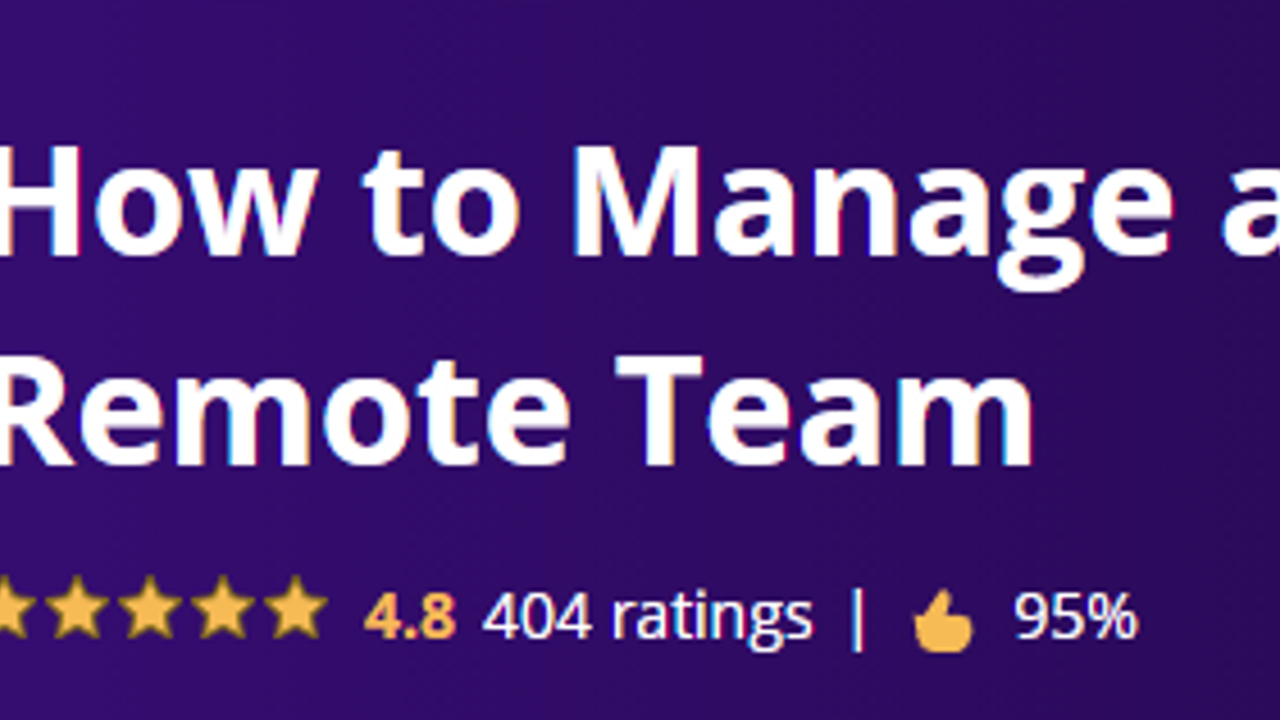GitLab: How to Manage a Remote Team

Why I decided to do this course?
Distributed working is here to stay, mixing a hybrid combination of face to face and remote elements. After 18 months of a battling through the global pandemic that forced organisations into this new way of working, it is now that organisations globally are thinking about how to transition this distributed working culture to BAU.
We are in the wild west of this new world, with different organisations and countries experimenting with different paths – the way forward is as yet unclear.
I believe it’s everyone’s responsibility to bring our best to work and incorporate regular skills and knowledge upgrades when the situation requires it. This is one of those times.
Who are the course authors?
Developed by Gitlab, an organisation that has been fully remote since 2011, and hosted on Coursera, this course is free, or you can get a certificate for minimal cost. Mostly narrated by Darren Murph, Head of Remote @gitlab and Jessica Reeder, Senior All-Remote Campaign Manager, it provides a wealth of information on remote and hybrid working practices.
What the course covers?
Self-paced to be completed over 5 weeks, the course covers
- Remote work best practices
- Managing remote teams
- Remote adaptation processes for organisations
- Cultures and Values for Distributed Teams
After each module you are required to complete an assessment with a pass mark of 80%.
To pass the course, you must complete final assignment outlining your remote transition plan. This will be peer reviewed and you are also required to peer review other people’s transition plans.
Key take-aways
Hybrid-remote is quickly becoming one of the most popular team models, particularly for organizations who are transitioning back to the office following global shutdowns.
There is no one right way
- The process of adopting remote practice is going to be very different for every organization, every leadership team, and every company culture. Your plan and your timeline are up to you.
Don’t underestimate the challenges
- The greatest challenges center around providing an equitable experience for remote and co-located team members.
- It's important to acknowledge that communication is a challenge. It's a challenge at any company. But it becomes more of a challenge in remote.
A focus on Transparency & Iteration
- A culture of transparency and iteration enables asynchronous work. Because people can access the information they need, no matter what hours they're working. That's a strategic choice. It helps create a holistic environment where team members know how to work and are empowered to be effective.
Managing Burnout
- Leaders need to be coaching their employees to manage their own time, take vacation time and days off. Making sure employees don't burn themselves out is going to become more of a challenge in a hybrid-remote environment.
Focus on Async Work
- People need to be able to work independently on things, and so you have to focus on work breakdown and documenting everything.
Communicate, communicate, communicate
- Adopt multimodal communication. Leaders need to comfortable saying everything that is important to be communicated three times in three different ways. Even when they work really hard, they probably realistically only reach to about 80 percent of people.
Conclusion
Completing this course has unveiled the complexities of remote and hybrid working, the organisational conditions that need to be in place to be successful and the role leaders play in shaping a healthy aligned organisational culture that thrives in a remote environment.
Stay connected with news and updates!
Join our mailing list to receive the latest news and updates. Your information will not be shared.

